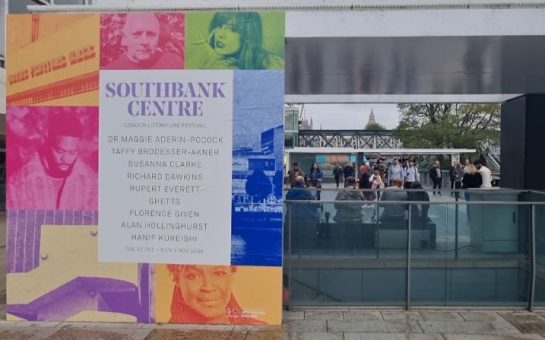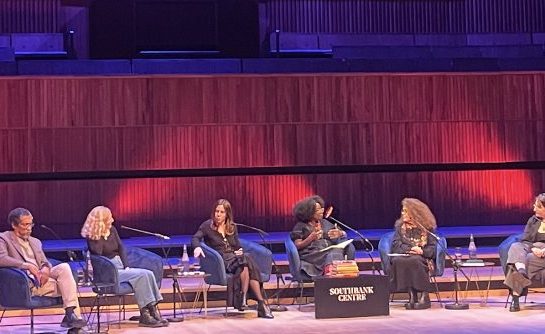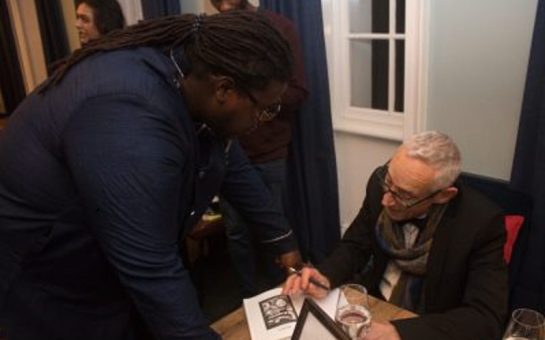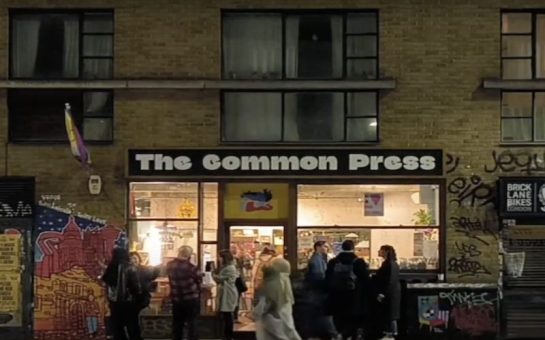The 27-year-old has written a number of books.

What’s it like to become a published writer while still a student? Lauren Lucien, 27, began her publishing career while studying Creative Writing with English Literature at Kingston University London. Alice Todman finds out about her life as a full-time writer.
Can you tell me about your publications so far?
I’ve written two books for students published by Palgrave Macmillan. One is called University Life: Making it Work for You. I’ve tried to show that university is an investment so students should make the most of it. My cookbook Student Brain Food: Eat Well, Study Better came out in July 2013 and includes recipes from family and friends. Every year I was at Kingston I got a new book published or a new contract.
How long have you been writing for?
I won my first creative writing prize in Year Four, which was a packet of Maltesers.
How did you go from there to becoming a published writer?
I’ve always taken opportunities when they come and spoken up. I’ve never really been a quiet person – if I don’t know something I’ll ask. Because I’m an extrovert I feed off being around different people and atmospheres. I proposed an idea and went from there.
What did you do before you became a full-time writer?
I had my own tuition business and I taught creative writing. I also taught Maths and French to children sitting the 11+ exams and worked as a GCSE tutor in a PRU. But I’ve worked in a nightclub, an estate agents and a sweet shop. I’ve always done three jobs at once, even when I was at Kingston.
Can you tell me about your current projects?
I’m working on a Young Adult trilogy based on mental illness, which affects one in ten young people, although I believe the reality is much higher. Members of my family have paranoid schizophrenia so I wanted to explore that too. As a writer, I hear voices describing events that haven’t happened. People with schizophrenia often hear multiple voices describing events that haven’t happened. Is there a correlation? It’s something to think about. I wanted to show that mental illness doesn’t always come from trauma; sometimes it just happens.
Do you think there are similarities between writing non-fiction and fiction?
I write non-fiction to inform and entertain. With fiction, I’m not writing to inform someone about the perils of having a mental illness. I’m writing something for people with mental illness-or for anybody, to escape into.
Are there writers who inspired you growing up?
As a kid, I was so into books that I was the librarian of the bookcase in my classroom. When I went to sleepovers I would read the kid’s books and not play so I didn’t go to many of those. But I don’t get inspiration from writers; I get inspiration from real life.
What did you learn about writing at Kingston?
Just do it and omit needless words like adverbs. Kingston taught me to go for the top thing you can go for and that it’s ok to dream about your writing. Some of my lecturers like Dr. Belinda Webb and Kathryn Maris really encouraged me. I think the main thing was that they listened and gave me advice about publishers.
How have you found the public response to your writing?
It’s surreal. I went into Waterstones the other day and a girl was buying my book University Life: Making it Work for You. Good and bad reviews can be encouraging.
Do you have any advice for new writers?
Identify your audience and your voice. If it doesn’t naturally come, write something else. If you want to be a writer just do it and stop talking about it. Don’t talk about it until you’ve written ten pages and then you’ll know if you’re a writer or not.
What do you think about the ‘Young Black Writer’ label?
People do put me in that box, but I’m mixed race. There are other mixed race writers but I don’t think there are enough. Publishing is not always as multicultural as the UK is. In my cookbook there’s a photo of me and my sister, two mixed race people, which you don’t see very often. Zadie Smith came later, but when I was younger I didn’t have many role models, so hopefully I can be somebody’s somebody.
On top of her writing projects, Lauren plans to begin a Graduate Certificate in Psychology at the Institute of Education in January 2014 with a view to becoming an Educational Psychologist.
Follow us @SW_Londoner




